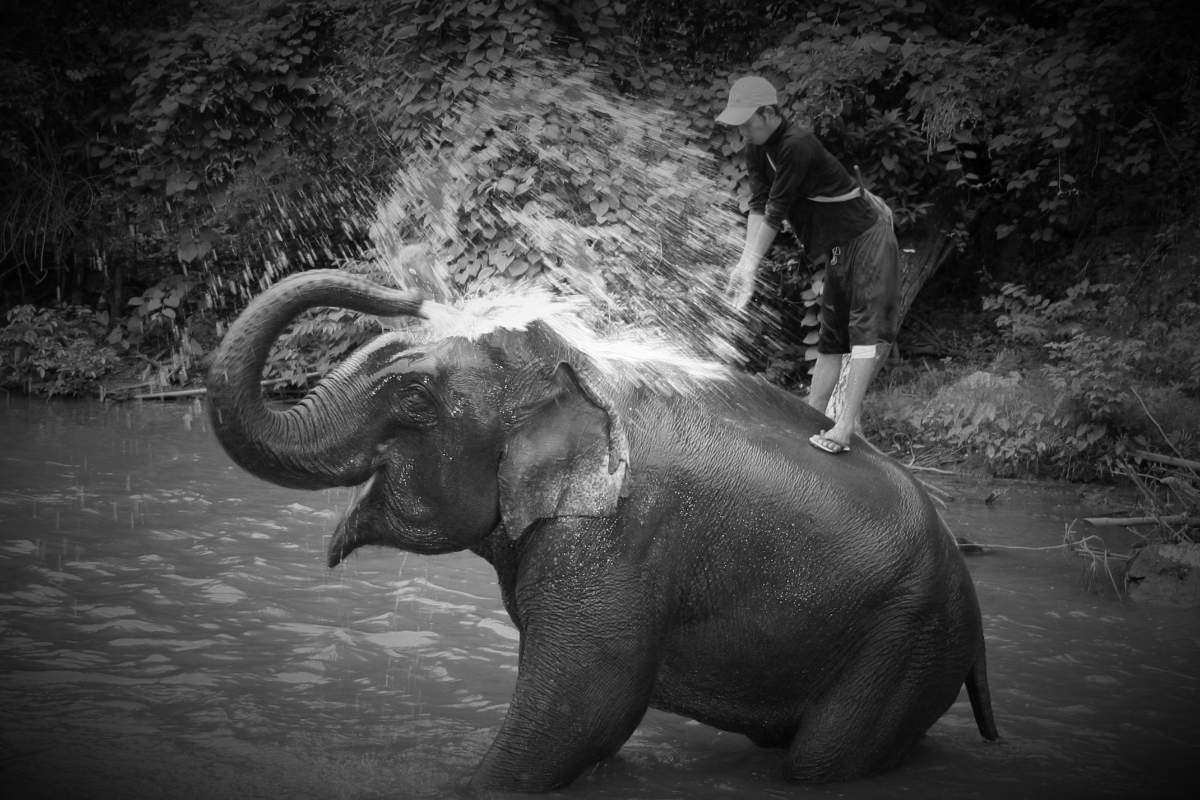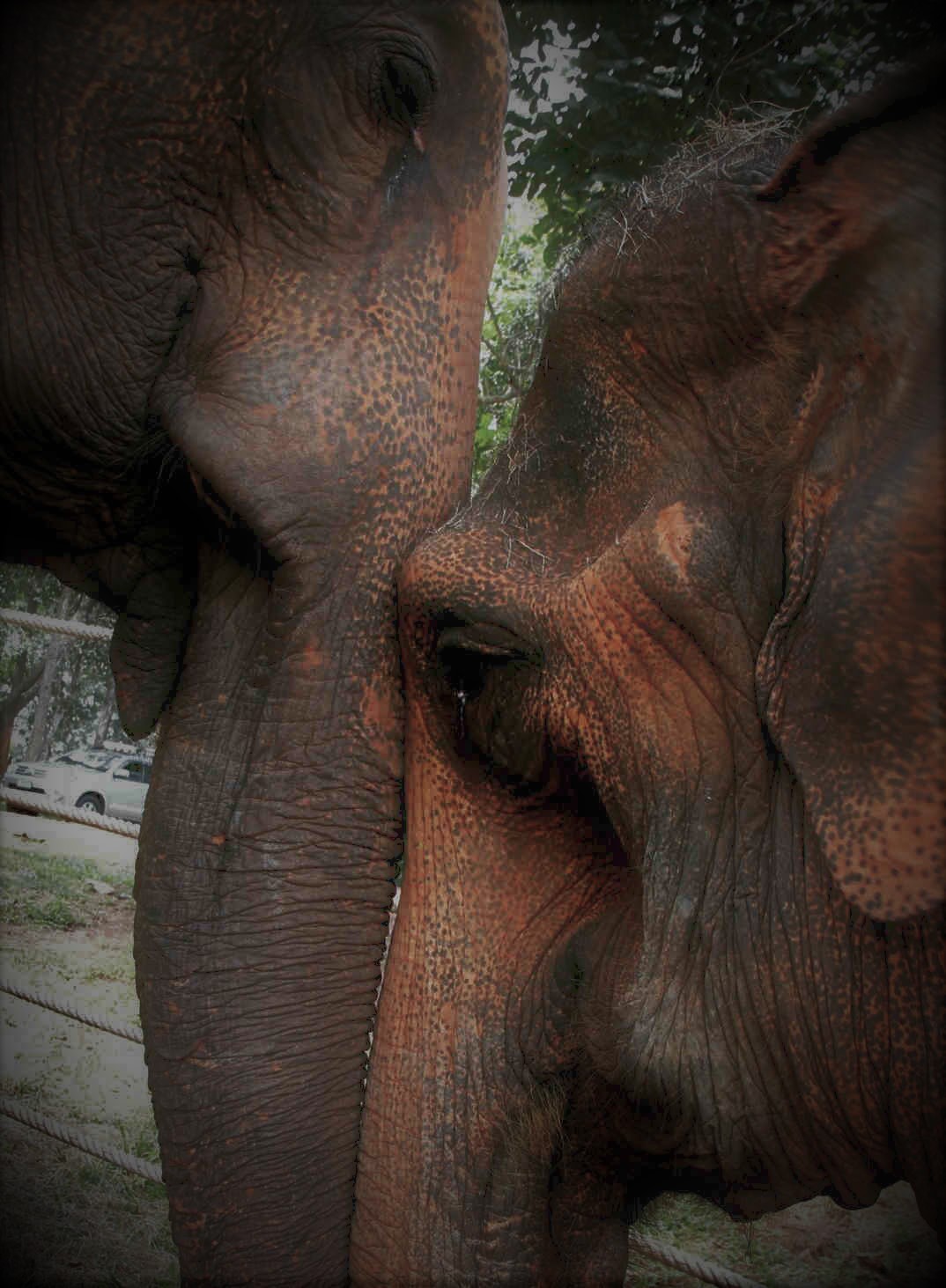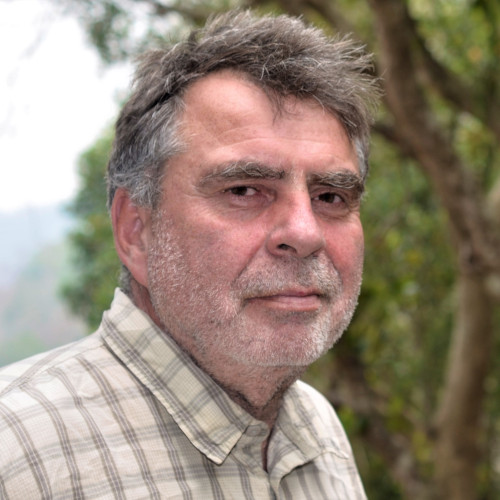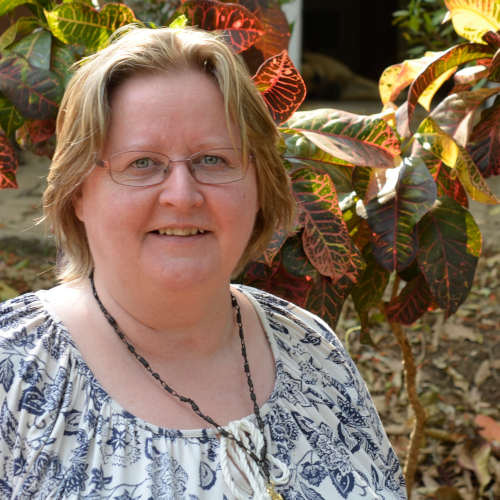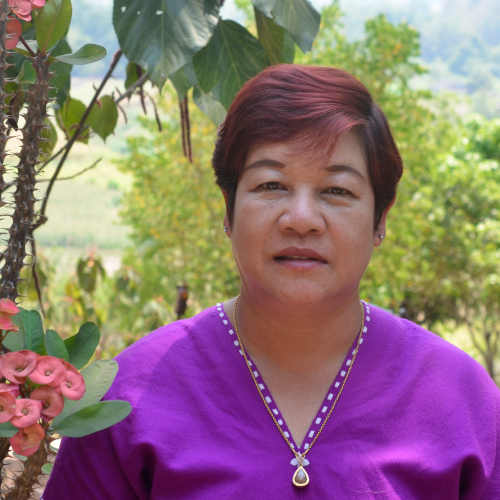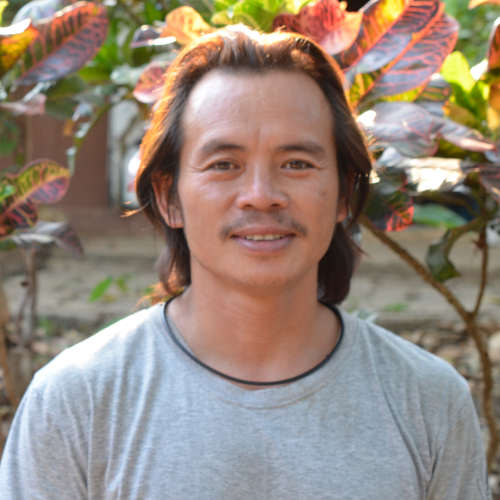About Us
ABOUT OUR FOUNDATIONFUTURE FOR ELEPHANTS
ELEPHACTS
POSSIBLE AGE OF AN ELEPHANT
NUTRITION IN KG / DAY
ESTIMATED NUMBER OF ELEPHANTS IN THAILAND
MONEY RAISED by tong bai IN THAI BAHT
What Drives Us
Our Mission
The TONG-BAI FOUNDATION is a non-profit foundation with the goal of providing endangered Asian elephants with a long-term perspective for the future. To date, the foundation has been able to acquire 6 elephants with the help of generous donations.
Committed to the goal, these elephants are adequately relieved of their age and state of health, so that they can live in a natural rhythm of life in the herd in natural environment of Northern Thailand.
Please help us to ensure that elephants in human hands can live a decent life in their ancestral habitat forest – surrounded by mountains, rivers and rice fields.
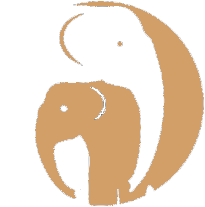
Adopt An elephant

Make a Donation
Save AN ELEPHANT
Why Do Elephants need our help?
ASIAN ELEPHANTS ARE HIGHLY THREATENED BY EXTINCTION
The natural habitat for asian elephants decreased to a small fraction. As last resort only nature parks can now be a home to wild elephants. However, in these regiment areas only a limited amount of elephants are able to live. We cannot influence the wild elephant population directly. But we can breed with our elephants. The number of domesticated elephants fell from 1950 to 2000 by 80%. However, in the last couple of years the population rose slightly and we are thrilled about every newborn calf of our herd. That is how we can contribute to the preservation of these gorgeous gentle giants.
ELEPHANTS LIVE UP TO 80 YEARS
Elephants can become very old, up to 80 years. When we commit ourselves to the protection of elephants, this always means a long-term commitment. For every elephant calf born today in human hands, we must ensure that his livelihood will be maintained in the coming decades. Projects for the protection of our grey giants must be designed across generations and hand in hand with the local population in order to offer the elephant in human hands a life as natural as possible. The funds needed for this must flow continuously, be it through income with the animals in gentle tourism or sponsorships and donations. In order to earn money in tourism with and for our elephants, responsible guests from all over the world must continue to visit elephant camps, which guarantee a responsible and respectful approach to the animals. You see, it will not work without you!
ASIAN ELEPHANTS HAVE BEEN IN HUMAN HANDS FOR 6000 YEARS
The relationship between elephants and humans was and is a very special one. Domesticated elephants play a significant role in Thailand’s history and culture and many elements of the Buddhist religion are intertwined with these gentle giants. Their appearance and character have often been used as metaphors in Buddha’s teachings. In the history of Thailand, elephants were used in temple construction and in the timber industry. However, in 1989, when the teak strike stopped, the situation of working elephants changed from one day to the other. Thousands of elephants and their owners became unemployed – the families’ main source of income had become an intolerable financial burden due to high running costs. Some elephants found rewarding work in the tourism industry. Many, however, were not so lucky and were forced to fight hard, often under unworthy living and working conditions. In order to lead our animals into a promising future – in an environment as natural as possible – working close with the local people is inevitable. We can only guarantee this by combining their centuries-old traditions with the demands of modern animal welfare. To ensure this path regarding traditional experiences of elephant-owning families, respect their religion and culture, and mix it with the latest scientific researches and animal welfare aspects is necessary.
ELEPHANT BABIES ARE RARE
CHALLENGING: ELEPHANTS CO-LIVING WITH HUMANS
The conflict between elephants and people does not only worsens on the edges of national parks due to closer growing villages and agricultural areas. Our camp is located near a river, surrounded by dense forests, small villages, rice fields and banana plantations. If one of our elephants gets on a rice field or the banana plantations illegally, he does not only eats as much as he wants but destroys all harvest of farmers in the villages nearby. The high compensation payments are only one problem in this scenario. If a farmer sees his harvest or his family threatened by invading elephants they will defend themself accordingly. As a result the life of our elephants can be in serious danger. We include the local villagers in our concepts. We do not only provide information about these gentle giants and contact with our animals but the Tong-Bai Foundation creats jobs and supports social projects in the villages. As long as we stick to certain rules we are a welcomed guest around here. We are for example allowed to use the river for bathing our elephants but have to make sure it is not over-polluted with elephant dung. Since the river is used as a food source and service water our mahouts have to remove elephants dung from the water after a nice bath with our guests.
ELEPHANTS EAT 250 KG A DAY
Elephants spend about 18 hours a day eating. Since their digestion is not very effective they have to consume large quantities of food to meet their nutritional needs. As our elephants spend a lot of time each day and night in the camp surrounded by a species-rich forest and grassland, they are able to eat as natural as possible. They can add to their diet every herbs, grass, bark and roots they want to. Due to the immense amount of feed of about 200 kg, which requires a full-grown elephant a day, elephant grass, corn and hay must also be fed. The permanent provision of hay is a great feature and we are proud to be the only privately managed elephant camp to offer our animals this raw food which is rich in fiber and protein. The production of hay has a long history in Europe but is not common in Thailand. The long rainy season and high humidity make hay production very difficult. Hay, which is healthy and herb-scented for elephants, can only be harvested in December and February, and the widespread application of pesticides must be avoided, making annual productivity comparatively low and hay accordingly cost-intensive. Only in a few places in the country this high-quality feed is produced. One of these places is the village of Ta Goa Muang in the district of Lampun, about 80km from Mae Sapok. Here, a group of 20 small farmers collectively cultivate an area of about 48 hectares (300 Rai). Even the corn, of which we feed only the stems and not the fruit flask, must be grown pesticide-free. Of course, this will give the farmer less crops and the loss of earnings will have to make up for the “waste product”. The harvest of elephant grass, specially planted for the elephants, is very labor-intensive and sweaty.
ABOUT US
Our “human” Team
BODO JENS FÖRSTER
Director
BIRGIT SIEBERLING
Founder & Member of the Board
THONGKAM CHAIGAEO
Vice Director
SEECHAI TOMALI
Vice Director
The STORY OF AN UNFORTunATELY SHORT Acquaintance
THE ELEPHANT
“TONG BAI”
When three calves were born in the ELEPHANT SPECIAL TOURS camp in 2006, the idea was born to set up their own breeding program for elephants. So we wanted to give our little contribution to the preservation of these magnificent pachyderms. There are several things to consider: At best an elephant has a similar life span as a human and must be taken care of in this long period – cared for and financed. It also takes several years for a small elephant to recoup the costs it causes. To live with elephants, to develop projects with them means – above all – one thing: one needs time and has to think long term.
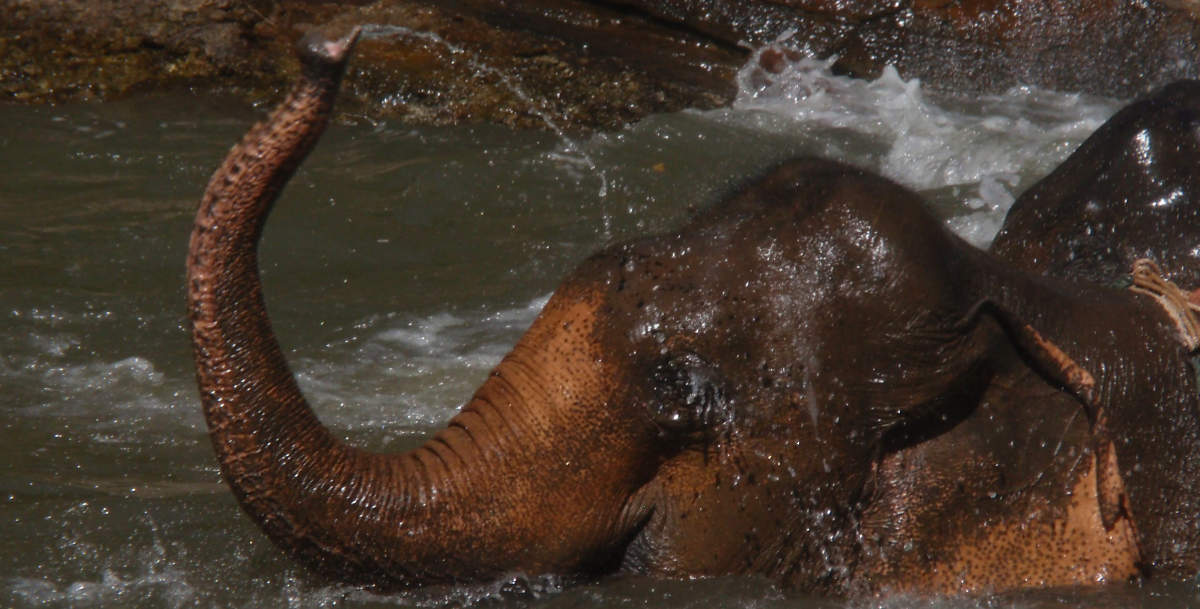
Breeding bulls were not available in 2006, so a sustainable breeding program was not possible. When the offer came in October 2009 to buy an elephant, the question arose how financing could be possible. I had no money to make such an investment. Former guests who accompanied me on an elephant trek the year before had already said in advance that they would add money. As a result, the elephant Tong Bai was financed by Birgit Sieberling, Ursula Kern and Günther Sippl.
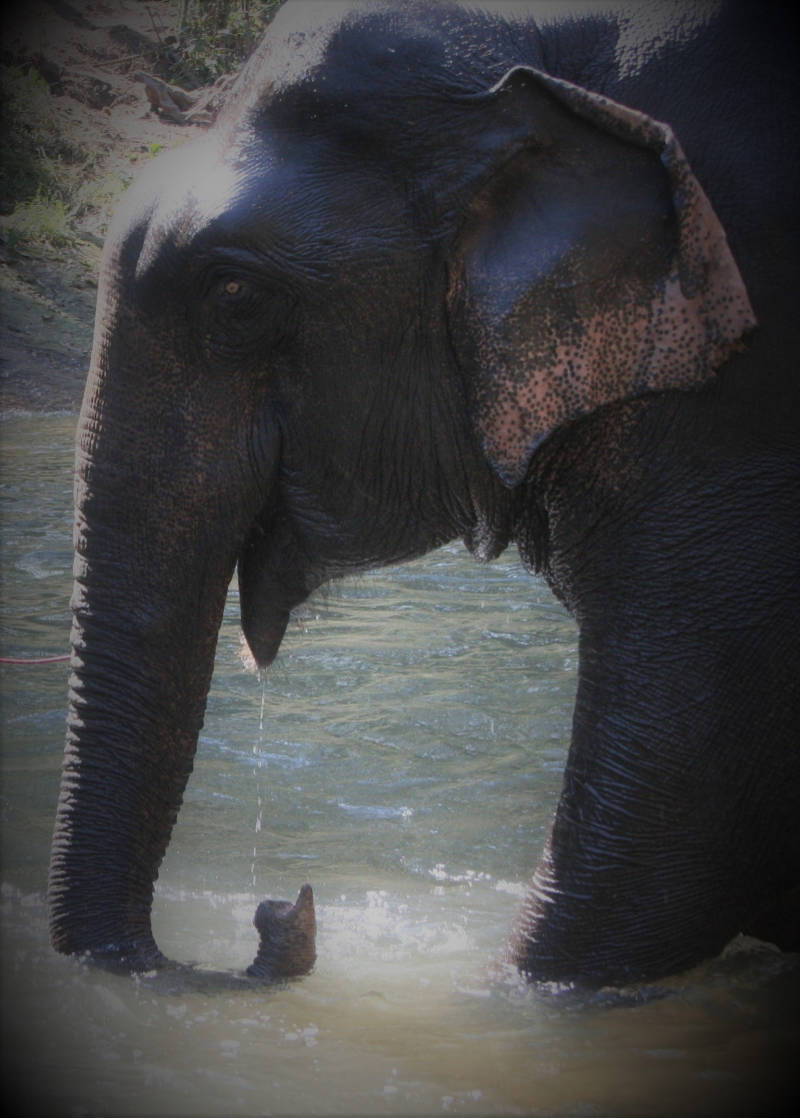
Tong Bai was 26 at the time and worked in a camp where he was oppressed by another big bull elephant. When he came to us, he had all the qualities of a great future breeding bull. He had made an excellent start, but unfortunately a tragedy happened on 20th of March 2010.
I will never forget that day – we had heavy summer storms. Our elephants were in the forest at night. I told the mahouts in advance to let Tong Bai sleep near the camp. Unfortunately, that did not happen. The tree he stood next to during the night was struck by lightning and Tong Bai fell in panic down a slope and unfortunately passed away. I sat next to him for one day and accompanied him on the way to his next life. That night, along with the dead elephant, it became clear to me that I can not continue the company Elephant Special Tours in the same way as I built it up. The way as I imagine a meaningful financing of elephant projects, I will never be able to raise the necessary money myself. The project TONG BAI was founded in memory of the deceased elephant. The goal was to finance things that are usually not financially with a purely commercial project.
The TONG BAI FOUNDATION was founded on January 01, 2011, as well as the German-based non-profit association TONG BAI e.V .. The three co-owners of the elephant were founding members of the association.
